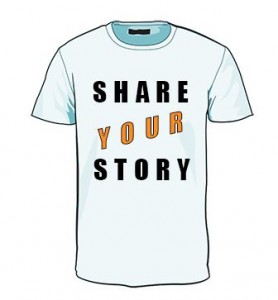 Getting dressed takes little more than five minutes. But did you know it takes as long as six months to make and market a T-shirt? And that doesn’t include the six months it takes to produce the cotton.
Getting dressed takes little more than five minutes. But did you know it takes as long as six months to make and market a T-shirt? And that doesn’t include the six months it takes to produce the cotton.
This week is the ESRC (Economic and Social Research Council) Festival of Social Science week (7th to 14th November) and, to celebrate, the Institute for Social Marketing is running an online event asking us to consider the life story of the T-shirt. What journey has it made to end up in our wardrobe and what are the implications for social and environmental sustainability?
Have you ever wondered how a T-shirt ends up on your back? What’s the process it goes through, what considerations are made during its production and what influenced you to buy it when there are so many to choose from?
As part of the festival you can undertake an interactive wardrobe audit by counting the number of pairs of jeans, T-shirts and socks you own; and follow the life cycle of a T-shirt through production, retail, ownership and recycling. Blogs from OU academics and industry experts involved in the production, retail, marketing and recycling of clothing, reveal how different perspectives on sustainability can be the basis for change.
The festival is hosted on the OU’s OpenLearn website and includes fun activities to generate debate about how we buy, use and feel about our clothes, all of which have implications for sustainability. Professor of Marketing at the OU, Sally Dibb, said:
“Our clothes are very important to our sense of identity: we all have favourite items, including some which have sentimental value. Some t-shirts we wear again and again, while others languish unworn in our cupboards. We hope that staff and students will help make the event a success by sharing their own t-shirt stories.”
In this video, entitled ‘Why we should stop wearing clothes we never wear’ Helen Roby, Research Fellow at The Open University Business School, explains that 30 per cent of clothes are never worn. She and her colleagues are conducting research aimed at helping consumers and the industry develop more sustainable behaviour and reversing the current tide of ‘fast fashion’.



